ANIMAL STORIES
| Lessing, Doris May | The old age of El Magnifico |
Return to top
BIOGRAPHY
| Evans, Peter | Ava Gardner |
| Nadin, Geoff | Treasure house |
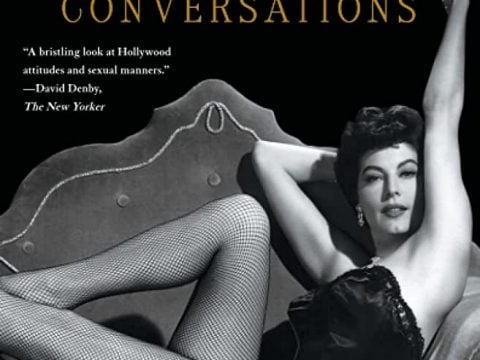 Ava Gardner: The Secret Conversations by Peter Evans
Ava Gardner: The Secret Conversations by Peter Evans
Jaw-dropping anecdotes about film legends and the studio system in its heyday make this an irresistible read for Hollywood history buffs. A fiery beauty (1922–1990) who loved to fight (even with the author she hired), Gardner inspired uncanny devotion among colleagues, friends, and lovers. Of the latter, there were many, and even seasoned fans will learn fresh tidbits about ex-husbands Mickey Rooney, Artie Shaw, and Frank Sinatra, as well as her tumultuous relationships with Howard Hughes and George C. Scott. One of the more touching stories is of Gardner, self-conscious after a stroke left her face partially paralyzed, asking a famed cinematographer to set up flattering lighting prior to meeting with a publisher. Journalists will find the book of interest as it makes transparent the prickly process of ghostwriting. Evans (Bardot: Eternal Sex Goddess) shares the difficulty of sequencing the life of a movie star whose memory is failing and who angrily retracts batches of sensitive material that slip out during 3 a.m. phone calls. Gardner is funny and frank, and Evans’s diligence makes the book not only one of the more revealing celebrity autobiographies published recently, but a candid glimpse into the world of a ghostwriter, star handler, and late-night confidante. Publisher’s Weekly, April 2013
Return to top
COOKING
| Cox, Freya | Simply vegan baking |
Return to top
GENERAL FICTION
| Chase, Eve | The birdcage |
| Clements, Rory | A prince and a spy |
| Dazai, Osamu | No longer human |
| Grima, Jacqueline | The weekend alone |
| Grippando, James | Code 6 |
| Hart, Emilia | Weyward |
| Holleran, Andrew | The kingdom of sand |
| Marshall, Laura | Three little lies |
| Mayne, Kerryn | Lenny Marks gets away with murder |
| McPhee-Browne, Laura | Little Plum |
| Moyes, Jojo | Someone else’s shoes |
| Neerven, Ellen van | Heat and light |
| Seymour, Gerald | In at the kill |
| Sullivan, Mark T. | The last green valley |
| Vermette, Katherena | The strangers |
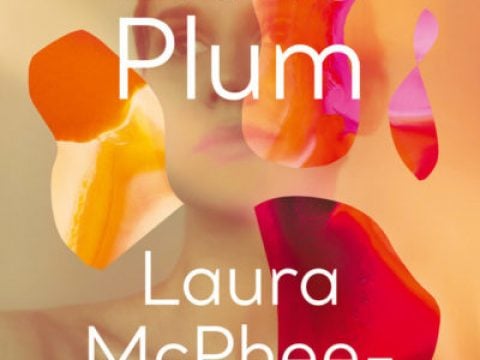 Little Plum by Laura McPhee-Browne
Little Plum by Laura McPhee-Browne
Little Plum is the second novel by the award-winning author of Cherry Beach, Laura McPhee-Browne. The story unfolds around 29-year-old Coral, who decides to follow through with a pregnancy from a two-night stand. We’re with Coral as she meets Jasper, has good and then bad sex with him, grows a child inside her, and becomes a mother. The narrative is straightforward: a woman has a baby. But the pleasure of reading Little Plum comes from Coral’s inner world and the incredible detail that the reader is invited to experience. We’re privy to intrusive thoughts, and compulsive tapping and checking behaviours. We go to dinner with Coral’s mother and come to understand their strange relationship and what it implies about Coral’s anxiety about being there for a child. We’re treated to pasta in Carlton, tram rides through Melbourne’s inner north and details about precious stones. McPhee-Browne’s writing feels honest and open; she is confident in airing truthful thoughts around motherhood, whether intrusive or deliberate. Exploring themes of womanhood, identity, friendship and mental health, McPhee-Browne is a skilled writer and appears to have a deep understanding of her own inner world and mental health. Similar to Allee Richards’ Small Joys of Real Life, Little Plum is a sincere character study for anyone who relates to being an almost-30-year-old navigating one of life’s crossroads. Books and Publishing, November 2022
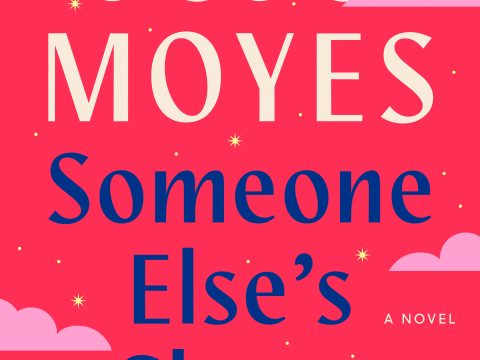 Someone Else’s Shoes by Jojo Moyes
Someone Else’s Shoes by Jojo Moyes
Moyes’s charming spin on Trading Places (after The Giver of Stars) follows two 40-something women who end up with each other’s shoes. After Sam Kemp accidentally grabs the wrong bag at her London gym and finds in it a custom-made pair of Louboutins, she takes to wearing the heels to business meetings and finds a new confidence among her colleagues. Meanwhile, American Nisha Cantor ends up stuck with Sam’s sensible flats. Nisha returns to the hotel where she’s staying with her wealthy husband, Carl, only to find he’s locked her out and frozen her accounts, blindsiding her. Then the gym suddenly shuts down and Sam has no way to return Nisha’s belongings, so she leans into her new life, avoiding her depressed husband and a boss who’s out to get her. Meanwhile, Nisha takes a job at the hotel where she was once a guest, and Carl gives her the ultimatum to find the Louboutins, which he’d given to her, or forfeit any kind of divorce settlement. The plot leans a bit too much on convenience, but Moyes is never short on her trademark clever observations (of Sam: “There is a particularly vindictive tenor to the kind of hangover that occurs in your forties”). The author’s fans will have a ball. Publisher’s Weekly, November 2022
 Checkout 19 by Claire-Louise Bennett
Checkout 19 by Claire-Louise Bennett
Bennett’s idiosyncratic and arresting latest (after Pond) explores a woman’s tenacious attachment to the written word. The unnamed narrator describes her peculiar experience of reading as a young bookish girl: she thinks “the left page nearly always has better words on it,” and, given the readerly urge to turn the page, typesetters are “irresponsible” for allowing “important sentences to appear at the very end of the right page.” As an adult, she studies literature, works weekends at a grocery store, and scours books for words that feel “as if they are being written as you read them, that your eyes upon the page are perhaps even making them appear.” Along with the narrator’s recollections are accounts of her early efforts at writing fiction, “the quickening revolutions of my supremely aberrant imaginings.” She recreates the intensity of artistic inspiration and then, from a distance of years, recomposes the lost or abandoned stories themselves, an exercise that proves much more successful than one might expect, as seen in, for instance, a Borgesian tale about a library of blank books concealing one transformative sentence only visible to the collection’s owner. Bennett’s narrator also recounts interactions with men: a charismatic teacher who senses her fierce talent; vindictive and entitled friends and lovers; and a Nietzsche-toting grocery shopper who, in a scene that demonstrates the destabilizing joy of this book, fills his cart in an “exquisite sequence of sublime prestidigitation.” Encompassing literary criticism, suggestive fables, feminist polemic, a portrait of the artist, and a phenomenology of reading, this transfixes on both the right page and the left. Bennett marvels once again. Publisher’s Weekly, December 2021
Return to top
HISTORICAL FICTION
| Fransman, Karrie | Gender swapped Greek myths |
| Goldsworthy, Adrian | The city |
| Purcell, Laura | The whispering muse |
Return to top
MYSTERY
| Bowen, Rhys | Peril in Paris |
| Brett, Simon | Waste of a life |
| Buist, Anne | Locked ward |
| Coleman, Elizabeth | A routine infidelity |
| Cotterill, Colin | The delightful life of a suicide pilot |
| Crombie, Deborah | A killing of innocents |
| Downes, Stephen | The hands of pianists |
| Fairfax, John | Fatal proof |
| Frech, Steve | Want you dead |
| French, Nicci | The favor |
| Gray, Alex | Echo of the dead |
| Kellerman, Jonathan | Unnatural history |
| Longworth, M. L. | Disaster at the Vendome Theater |
| Lorac, E. C. R. | Post after post-mortem |
| MacBride, Stuart | The dead of winter |
| Marsons, Angela | Hidden scars |
| Matheson, Nadine | The jigsaw man |
| May, Peter | A winter grave |
| McDaniel, Tiffany | On the savage side |
| Mottram, Nikki | Crows nest |
| Perry, Anne | A truth to lie for |
| Pinero, Claudia | Thursday night windows |
| Raybourn, Deanna | An impossible imposter |
| Robb, J. D. | Encore in death |
| Saunders, Kate | The mystery of the sorrowful maiden |
| Taylor, Chad | Blue Hotel |
| Tudor, C. J. | The drift |
| Vassell, Charlotte | The other half |
| White, S. R. | Red dirt road |
| Willberg, T. A. | Marion Lane and the deadly rose |
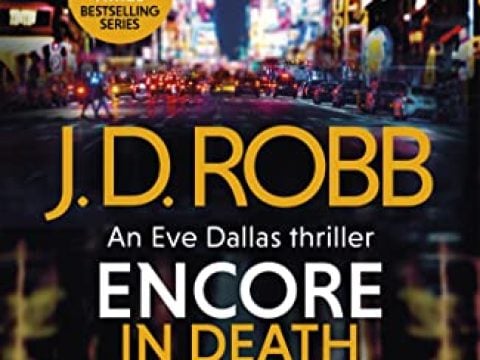 Encore in Death by J. D. Robb
Encore in Death by J. D. Robb
Early in bestseller Robb’s entertaining 56th near-future novel featuring Lt. Eve Dallas, head of the New York City Police Security Department (after 2022’s Desperation in Death), Eve and her crack homicide team are called to a crime scene: the Upper West Side penthouse of “golden god of stage and screen” Brant Fitzhugh and his Tony, Oscar, and Grammy winning wife, Eliza Lane. During a lavish party for around 200 of the couple’s friends and colleagues earlier that evening, Brant collapsed after drinking a champagne cocktail intended for Eliza. Eve suspects cyanide poisoning. With a well-liked, much-admired movie star dead and his famous wife calling for action in finding his killer, Eve is under pressure from above to make a quick arrest. The suspect list grows long with ex-wives, theatrical rivals, and crazed groupies. Plenty of enticing details of life among the theater and movie set make up for a plot that will be familiar to any Agatha Christie reader. As ever, the main draw is Eve’s relationship with Roarke, her swoon-worthy husband, who’s not only handsome and mega wealthy but also sensitive and respectful of Eve’s opinions and decisions. Series fans will be satisfied. Publisher’s Weekly, November 2022
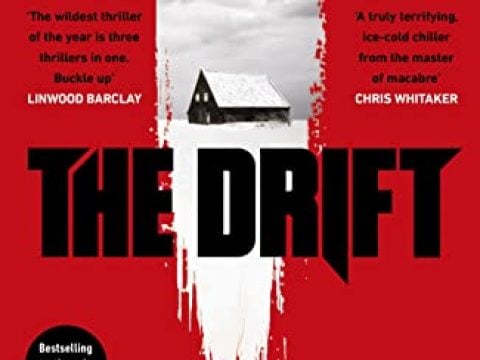 The Drift by C. J. Tudor
The Drift by C. J. Tudor
In this tour de force from Tudor (The Burning Girls), a postapocalyptic thriller, a haven called the Retreat, which has been constructed for a select few in the wake of a devastating new plague, proves to be not much of a haven. Some of those in residence at the mountainside facility begin to disappear, even as vital supplies go missing and power outages increase, leading up to the discovery of a body floating in the recreational pool. Meanwhile, a cable car transporting a group to the Retreat is stranded mid-journey; its occupants, including Meg, a former homicide cop, are stunned to find they’re trapped with a corpse, whom Meg recognizes. And a second group also faces a threat to their lives; Hannah Grant has been evacuated from a boarding school, but the bus she’s in crashes, possibly not by accident, trapping her and several others. Tudor shifts among the three situations, teasing a common link, and gradually ratchets up the pressure on her characters as they try to preserve their humanity while surviving. This is a masterpiece of its kind. Publisher’s Weekly, October 2022
 On the Savage Side by Tiffany McDaniel
On the Savage Side by Tiffany McDaniel
McDaniel’s stunning latest (after Betty) draws on a string of real-life unsolved murders and disappearances in Chillicothe, Ohio. The economically depressed town reeks of funk from the paper mill and an equally pungent stench of despair. Twin sisters Arcade and Daffy retreat into their fierce imaginations while growing up in the 1980s, despite their parents being addicted to heroin. Their resilience persists even after their father dies from an overdose: Daffy shows promise as a swimmer and poet, Arcade as an amateur archaeologist. By the time the two become teens, they too succumb to heroin addiction and turn to sex work to support their habit. They form fervent friendships with a group of other young women, calling themselves the “Chillicothe Queens,” though their “crowns” are the blissful highs of heroin. After a woman turns up dead in the river, followed by others including some of the twins’ friends, Arcade grows increasingly desperate to save them from a similar fate. McDaniel portrays the twins and the others in their group as almost preternaturally bright, full of knowledge and wonder, making for an aching contrast to their traumas of addiction, abuse, violence, and loss. It’s a striking portrayal of women fighting for their lives, and one readers won’t soon forget. Publisher’s Weekly, December 2022
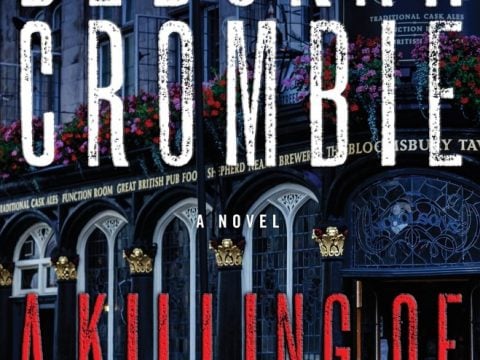 A Killing of Innocents by Deborah Crombie
A Killing of Innocents by Deborah Crombie
Bestseller Crombie’s skillfully plotted 19th police procedural featuring the husband and wife team of Det. Supt. Duncan Kincaid and Det. Insp. Gemma James of Scotland Yard (after 2019’s A Bitter Feast) perfectly balances the investigative action with the characters’ true to life personal problems. The duo and their colleagues are called to Russell Square, where Sasha Johnson, a trainee doctor at Thomas Coram Hospital, lies dead, stabbed in the chest. The victim’s assailant acted swiftly and efficiently, fading away into the crowd before even she realized she’d been mortally stabbed. Why would anyone want to murder the respected and much loved doctor? The stakes rise after the nurse in charge of Sasha’s ward at the hospital is fatally stabbed in Soho Square. Once again, there are no witnesses. What’s the connection between the two murders? Crombie provides plausible suspects and motives amid entertaining interplay, including some friction, among the members of the squad. This entry can be read as a standalone, but it will give special pleasure to fans who have grown fond of the couple over the years. Publisher’s Weekly, October 2022
Return to top
NON FICTION
| Bongiorno, Frank | Dreamers and schemers | 320.994 BONG |
| Burkeman, Oliver | Four thousand weeks | 650.11 BURK |
| Christian, Harrison | Should we fall to ruin | 940.5426 CHRI |
| Elborough, Travis | Atlas of improbable places | 909 ELBO |
| Langley, Philippa | The lost king | 942.046 RICH |
Return to top
POETRY
| Money, Jazz | How to make a basket |
| Neerven, Ellen van | Comfort food |
| Oliver, Mary | Dog songs |
 How to make a basket by Jazz Money
How to make a basket by Jazz Money
‘don’t forget this place / where life begins / tell it to the bubs to pass onto theirs / when strangers come / when other trees fall’ Jazz Money writes in her debut poetry collection how to make a basket, a book that lies at the intersection of womanhood, Indigenous history, settler colonialism, queer love and memory. Money’s voice is lyrical yet sharp, moving through land, language and love as protest against colonial violence. Motifs of smoke, water and trees recur throughout the collection—an attempt to connect with her ancestors and history: ‘the old trees remember / whisper / of our people / who have been here / since the / first sunrise’. Money’s poetry has been turned into murals, installations, digital interventions and film, and how to make a basket is an extension of her engagement with form. In each poem she plays with form and the result is reminiscent of how a basket is made: over, under, across, with patterns (and histories) that are infinite. This collection would appeal to those who are fans of Eunice Andrada’s Flood Damages, Ali Cobby Eckermann’s Inside My Mother, Omar Sakr’s The Lost Arabs and Tony Birch’s Whisper Songs. how to make a basket showcases Money as a fierce contemporary poet to watch. Books and Publishing, July 2021
Return to top
ROMANCE
| Linden, Caroline | Map of a lady’s heart |
Return to top
SCIENCE FICTION & FANTASY
| Cogman, Genevieve | The untold story | |
| Ferguson, Alison | Grey nomad | |
| Hendrix, Grady | Horrorstor | |
| Smith, Tom Rob | Cold people | |
| Taylor, Jodi | About time | |
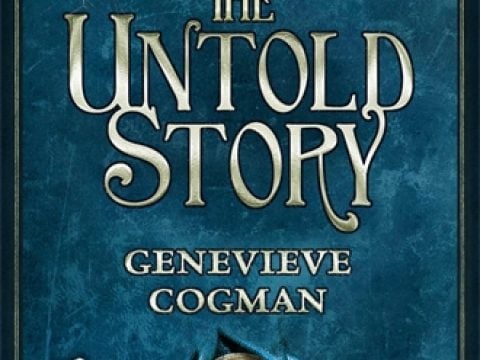 The Untold Story by Genevieve Cogman
The Untold Story by Genevieve Cogman
Cogman’s thrilling eighth Invisible Library fantasy (after The Dark Archive) finds librarian Irene Winters and her motley crew investigating a conspiracy rooted in the origins of the Library itself. Cogman skillfully gets new readers up to speed on the rich worldbuilding—in which an interdimensional library preserves the balance between worlds through the stories it houses—as Irene is assigned a top-secret mission to hunt down Alberich, a nefarious traitor to the library who she’s recently learned might be her father. Irene and friends—a human detective, a dragon prince, and a fae apprentice—delve into myths and folklore with scholarly diligence to fill in the gaps about Alberich’s past amid mounting rumors of worlds disappearing, and increased political unrest between dragon and fae. When Irene discovers an obscure story of the Library’s founding that hints at a secret at the heart of the Library—and may explain Alberich’s betrayal—Irene faces a terrible choice between protecting her friends and fulfilling her mission. Bibliophiles new to the series will be charmed by the premise and find this an easy starting point, while returning readers will be thrilled with the nail-biting conclusion. It’s a joy to see this series going strong. Publisher’s Weekly, October 2021
Return to top
TRAVEL
| Marias, Javier | Venice |
Return to top
New additions to eBooks at SMSA
EBOOKS
| Biography | Zauner, Michelle | Crying in H Mart |
| General novels | Suarez, Daniel | Delta V |
| Mystery | Cerra, K. L. | Such pretty flowers |
| Mystery | Cotterill, Colin | The motion picture teller |
| Mystery | Herrera, Jennifer | The hunter |
| Mystery | Hunter, Alice | The serial killer’s daughter |
| Mystery | Rothschild, Peggy | Playing dead |
| Mystery | St. James, Simone | Ghost 19 |
| Non fiction | Shaw, Ruth | The bookseller at the end of the world |
| Sci-Fi & Fantasy | Cauley, Kashana | The survivalists |
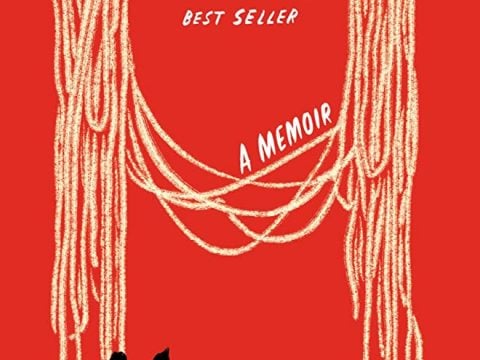 Crying in H-Mart: A Memoir by Michelle Zauner
Crying in H-Mart: A Memoir by Michelle Zauner
Musician Zauner debuts with an earnest account of her Korean-American upbringing, musical career, and the aftermath of her mother’s death. She opens with a memory of a visit to an Asian American supermarket, where, among fellow shoppers who were “searching for a piece of home, or a piece of ourselves,” Zauner was able to grieve the death of her mother, Chongmi, with whom she had a difficult relationship. Her white American father met her mother in Seoul in 1983, and Zauner immigrated as an infant to Eugene, Ore. In Zauner’s teenage years in the late 2000s, Chongmi vehemently opposed Zauner’s musical dreams and, in one outburst, admitted to having an abortion after Zauner’s birth “because you were such a terrible child!” The confession caused a rift that lasted almost six years, until Zauner learned of her mother’s cancer diagnosis. After Chongmi’s death in 2014, Zauner’s career took off, and during a sold-out concert in Seoul, Zauner writes, she realized her success “revolved around [my mother’s] death, that the songs… memorialized her.” The prose is lyrical if at times overwrought, but Zauner does a good job capturing the grief of losing a parent with pathos. Fans looking to get a glimpse into the inner life of this megawatt pop star will not be disappointed. Publisher’s Weekly, December 2020
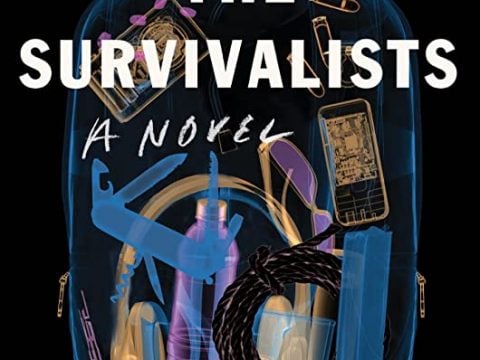 The Survivalists by Kashana Cauley
The Survivalists by Kashana Cauley
TV writer Cauley’s well-crafted if schematic debut involves a New York City lawyer’s quest to make partner at her firm and find love. Aretha is a successful Black corporate attorney assigned to squash a bunch of homeowners’ insurance claims following Superstorm Sandy. Meanwhile, after countless failed dates, she meets and falls in love with coffee entrepreneur Aaron, who lives with his business partner, Brittany, in the Brooklyn house they collectively own. But once Aretha moves in, she finds out the household members, who include James, a disgraced former journalist, are stockpiling guns and making other preparations for survival, having been stirred in part by Sandy’s destruction (the business name, Tactical Coffee, ought to have been a red flag). With Aaron out of town sourcing beans, Aretha accompanies James on gun runs, but in her determination to prove her worth, she loses focus at work and starts slipping up. Cauley’s understanding of plot is impeccable and she keeps the tension taut as Aretha gets more involved with the group, but though the author lightly grapples with the politics of gun ownership, the matter is ultimately reduced to cheap thrills (Aretha, for instance, “wanted to enjoy the rush of her last trip to make money off guns”), and the characters are written to type. It’s a good story, but it should have gone straight to screenplay. Publisher’s Weekly, October 2022
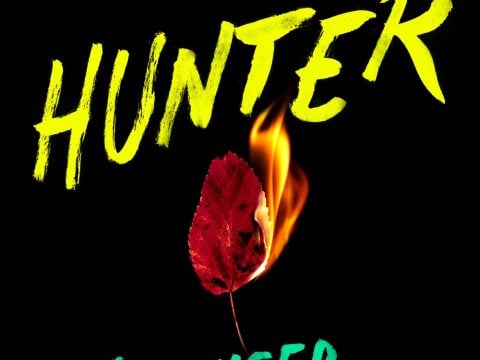 The Hunter by Jennifer Herrera
The Hunter by Jennifer Herrera
“I would not have pulled the trigger,” declares Det. Leigh O’Donnell of the NYPD in the opening sentence of Herrera’s stellar debut. Leigh was suspended from the force after she aimed her Glock at her police partner, enabling a criminal to escape. Even Leigh isn’t sure why she reacted that way. Since her actions imperil her career, she decides to accept a lifeline from her cop brother, Ronan, who has stayed in their hometown of Copper Falls, Ohio, and has persuaded his boss to offer Leigh a job. Leigh finds the community roiled by the bizarre deaths of three unemployed 25-year-old men, who were found drowned together in the town’s waterfalls. The deaths echo a tragedy from seven years earlier; three high school seniors died by suicide there the night before their graduation. Given that the current victims died at the very age the high schoolers would have been had they not jumped to their deaths, Leigh suspects a connection. The tantalizing question of why Leigh pointed her gun at her partner helps drive the complex plot, which is matched by thoroughly realized characters whose actions are anything but predictable. Herrera is a writer to watch. Publisher’s Weekly, November 2022
Return to top
AUDIOBOOKS
| General novels | Bartz, Julia | The writer’s retreat |
| General novels | Bausch, Richard | Playhouse |
| General novels | Fenkl, Heinz Insu | Skull water |
| General novels | Hurst, Daniel | We tell no one |
| General novels | Sennett, Frank | Shadow state |
| Historical novels | Schwartz, Selby Wynn | After Sappho |
| Mystery | Byrnes, John | Headland |
| Mystery | Malliet, G. M. | Augusta Hawke |
| Mystery | Raybon, Patricia | All that is secret |
| Mystery | St James, Dorothy | The broken spine |
 Skull Water by Heinz Insu Fenkl
Skull Water by Heinz Insu Fenkl
Fenkl returns a quarter century after Memories of My Ghost Brother with a mesmerizing narrative of a boy named Insu, whose mother is Korean and whose father served in the U.S. Army. After moving back to Korea from Germany in 1974, teenage Insu finds solace with his friends in rebellious acts like ditching school and selling stolen goods on the black market. Then Insu hears an ancient Korean myth from a monk that imbibing water collected from inside a human skull can cure any disease, prompting him to dig up a corpse in order to find skull water to cure his uncle, Big Uncle, a geomancer who suffers from a gangrenous foot and has been exiled to a cave to die. Fenkl elegantly weaves Insu’s quest, which doesn’t go quite as planned, with a parallel story of Big Uncle in the 1950s during the Korean War. Throughout, the author sustains an otherworldly sense of time and place, and brings to life conceits from Korean folktales (“Past and future—only the words are different, and if one disposes of them, all things become smooth and easy”). It’s a lovely achievement. Publisher’s Weekly, October 2022
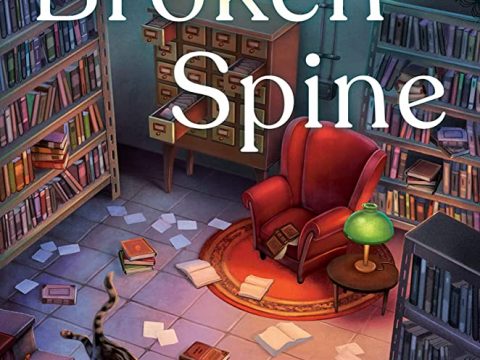 The Broken Spine by Dorothy St. James
The Broken Spine by Dorothy St. James
In this whimsical series launch from St. James (the Southern Chocolate Shop mysteries), Cypress, S.C., librarian Trudell Becket discovers that Mayor Marvin Goodvale and town manager Duggar Hargrove’s plan to renovate the library includes sending all print books to a recycling center. Horrified, Trudell sets out to transfer as many books as possible to a secret room in the library’s basement. Trudell’s dislike of the unctuous Duggar is well known, so when he’s murdered, she becomes the number one suspect. Assisted by various friends, including wheelchair user Flossie Finnegan-Baker (St. James ensures Flossie’s disability isn’t the focal point of her character), Trudell seeks to identify Duggar’s killer while trying to dodge a suspicious police detective who bullied her in high school. An intriguing plotline and plenty of red herrings redeem in part flat characters who often act illogically. Cozy fans seeking a lighthearted, straightforward mystery will be satisfied. Publisher’s Weekly, October 2020
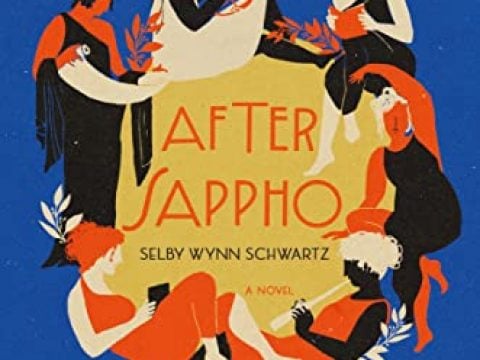 After Sappho by Selby Lynn Schwartz
After Sappho by Selby Lynn Schwartz
Schwartz’s brilliant debut novel (after the critical study The Bodies of Others: Drag Dances and Their Afterlives) recreates the lives of feminists in the early 20th century. The collective first-person “we” narrator—a Greek chorus devoted to the female poet Sappho—weaves the stories of writers, painters, and performers who, like Sappho, are attracted to women and are determined to become their authentic selves through art. Many of the threads revolve around Lina Poletti, who thrives in her classical studies in Bologna despite Italian laws restricting the rights of women. She writes poetry and plays about women, and has romances with another writer, Sibilla Aleramo, who’d been forced to marry the rapist who got her pregnant; and the stage actor Eleonora Duse, best known for her portrayal of Nora in A Doll’s House. They, along with expat American writer Natalie Barney, poet Renée Vivien, and painter Romaine Brooks, carve out a place in European society during a time when lesbianism is ignored, not criminalized. Then comes WWI: Brooks and others drive ambulances at the front, Virginia Woolf begins writing about Cassandra, and Poletti writes war poems. At the war’s end, a British parliamentarian accuses an actor of lesbianism in the press, thus placing women’s sexuality under intense public scrutiny. As the chorus narrates, “we were plunged back into a history we had barely survived the first time.” Schwartz’s account of what happens next as the central characters resist oppression speaks volumes on their efforts, and she contributes her own work of art with this irresistible narrative. Schwartz breathes an astonishing sense of life into her timeless characters. Publisher’s Weekly, September 2022


